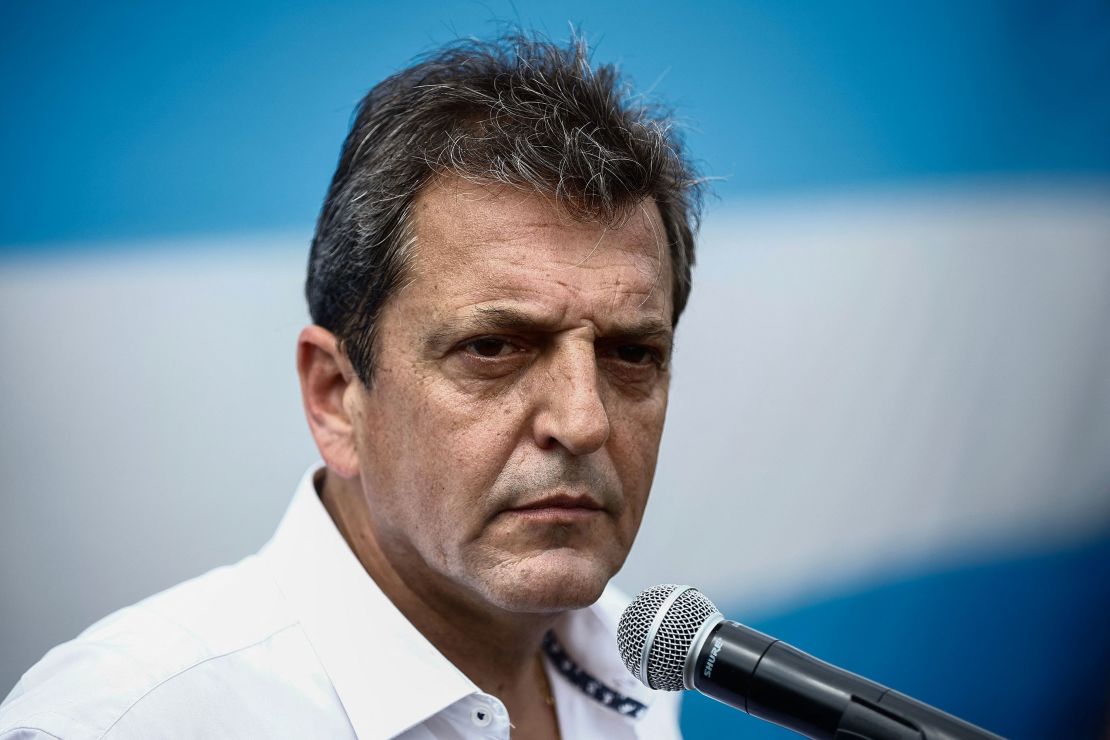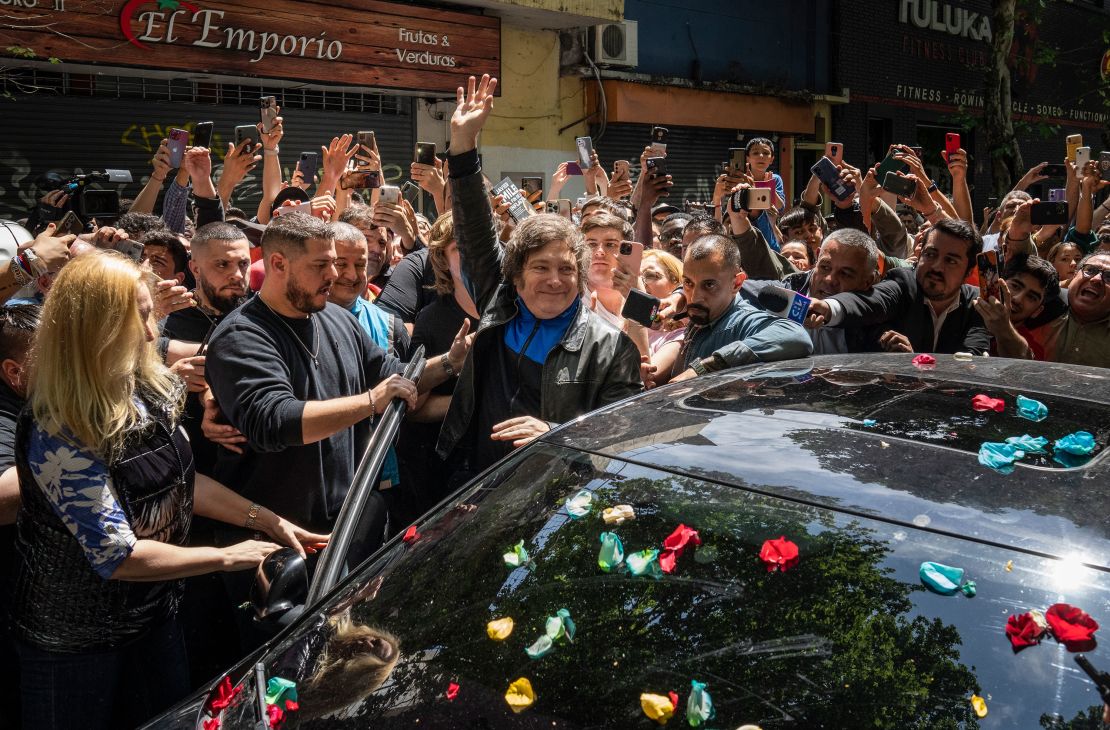CNN
—
The battle to decide who will lead crisis-hit Argentina is heading toward a runoff next month between left-wing candidate Sergio Massa and far-right libertarian Javier Milei, according to data released by Argentina’s National Electoral Chamber after the first Sunday’s voting round. .
After the polls closed, Massa received the highest number of votes – 8,877,325, or 36.33% of the total, according to the revealed data. Milei received 7,373,876 votes, or approximately 30.18%.
Third-place candidate Patricia Bullrich received 23.82% and conceded defeat Sunday evening.
Everyone is fighting to win the nation’s trust at a time of widespread disillusionment with the country’s elite and their management of the country.
The results highlighted the solidity of the government coalition that supports Massa, the current Minister of Economy, while Argentina finds itself in the most serious financial crisis in twenty years.
Turnout exceeded 75%, with more than 25 million Argentines voting and more than 90% of votes counted, the electoral body said.
“This has been a model day for Argentine democracy,” Julio Vitobello, secretary general of the presidency, said at a press conference on Sunday evening.
Inflation in Argentina has soared to 138%, Reuters reports, adding pressure on ordinary citizens trying to manage the cost of living.
“It’s so hard. Every day things cost a little more, it’s like always racing against time, searching and searching,” Laura Celiz told the news agency last month, while she was shopping on the outskirts of the capital Buenos Aires. “You buy what’s cheaper in one place and you go to the next place and buy something else.”
After voting in Buenos Aires on Sunday, current President Alberto Fernández celebrated national democracy on the social media platform X.
“I call on every Argentinian to defend him and decide the future of the country in the elections,” he wrote.
Bullrich, a former security minister, told CNN en Español that she would let economists run the Finance Ministry and offer a firm, calm hand at the wheel in relation to Milei’s outbursts.
With a long track record in national politics, she has recently worked to refresh her image to appeal to young voters, uploading viral challenges to YouTube and referencing in interviews her relationship with her cousin, singer Fabiana Cantilo .

Massa, who is part of the current government, balances a heavy ministerial portfolio including inflation control, soybeans (the country’s main export) and Argnetina’s relations with the International Monetary Fund.
He has tried to position himself as a more pragmatic left-wing voice in relation to the current governing coalition, and has worked to distance himself politically from Argentina’s leading vice president, Cristina Fernandez de Kirchner – without alienating himself. its power base.

Unlike his main rivals, political newcomer Milei offers little government experience and promises to upend Argentina’s existing economic structures. For her supporters, Milei’s promises of an overhaul have been enticing.
Milei, a former financial analyst and self-described “anarcho-capitalist” who wields a chainsaw at rallies, suggested a series of radical changes: dollarizing Argentina, cutting public subsidies and abolishing culture ministries; education; environment; and women, gender and diversity.
To win in the first round, a presidential candidate must obtain more than 45% of all votes or a minimum of 40% and at least 10 points ahead of the second-place candidate.
The next Argentine president will take office in December and begin a 4-year term.
Cnn
